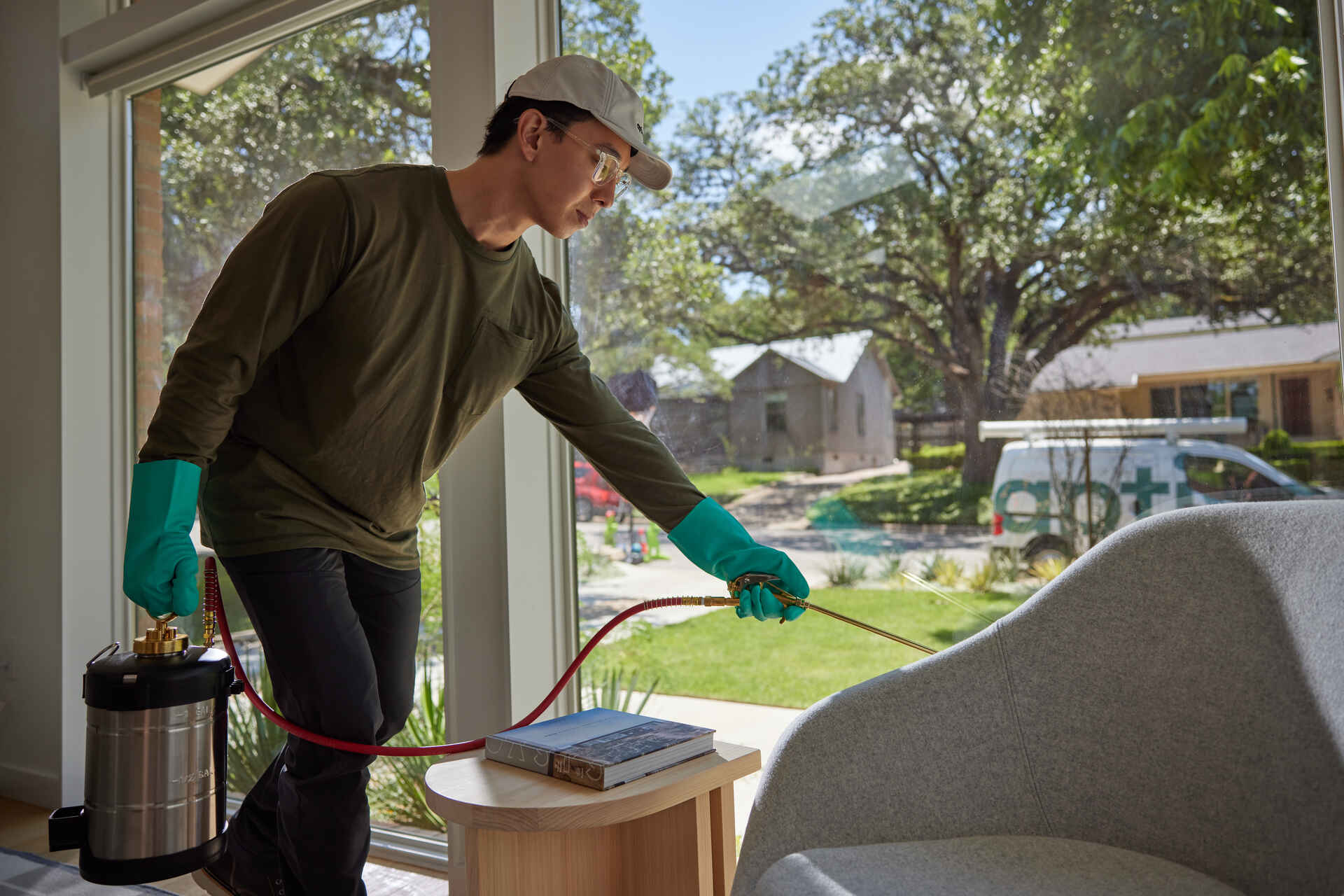A1 Commercial Pest Control Portland - Effective Bed Bug Solutions for Services
A1 Commercial Pest Control Portland - Effective Bed Bug Solutions for Services
Blog Article
Effective Pest Control Solutions: An Extensive Appearance at Extermination Techniques and Prevention Procedures
In the realm of parasite control services, the effective monitoring of infestations needs a meticulous approach that combines different methods and actions for both obliteration and prevention. From Integrated Insect Administration (IPM) approaches that prioritize sustainable services to chemical extermination methods made for targeted removal, the collection versus insects is huge and complex. Biological control techniques and physical avoidance actions provide alternate paths to successfully combating undesirable burglars. However, the trick to a comprehensive pest control plan lies not simply in the techniques themselves, yet likewise in the thorough expert assessment procedures that come before and inform them. By understanding the details of each strategy and exactly how they interplay, one can absolutely realize the intricacy and effectiveness of modern bug control services.

Integrated Parasite Management (IPM) Methods
Integrated Pest Management (IPM) Methods encompass a thorough method to pest control that concentrates on avoidance, monitoring, and control techniques to efficiently take care of pest populations. By incorporating various techniques, IPM intends to decrease the impact of bugs while additionally decreasing the dependence on chemical pesticides. Avoidance exists at the core of IPM, stressing techniques like proper sanitation, upkeep of hygiene, and sealing entry indicate prevent parasites from infesting structures. Monitoring plays a crucial role in IPM by on a regular basis determining and checking bug degrees to determine the appropriate intervention limits. Control approaches in IPM prioritize the usage of physical, organic, and cultural techniques before turning to chemical therapies as a last resource. These approaches consist of introducing natural predators, habitat alteration, and utilizing trapping tools to maintain insect populations in check. In general, IPM cultivates a environmentally aware and sustainable strategy to pest management, advertising lasting solutions that secure both human health and wellness and the ecological community.
Chemical Elimination Strategies
Chemical elimination strategies are commonly employed in insect control solutions to successfully get rid of parasite populaces that pose a threat to human health and property. These techniques involve using different chemical compounds particularly created to target and remove insects such as bugs, rodents, and other unwanted creatures. The application of pesticides, insecticides, rodenticides, and other chemical agents is carefully controlled to make sure optimum performance while decreasing threats to human beings, family pets, and the atmosphere.
One of the essential advantages of chemical extermination strategies is their capacity to give fast and targeted outcomes, making them especially beneficial in situations of serious invasions or urgent insect control requirements - a1 residential pest control portland or bed bugs. Nonetheless, it is vital to stress the relevance of correct handling, application, and disposal of these chemical items to stop unintended injury
Moreover, integrated pest administration (IPM) methods often integrate chemical extermination techniques with other techniques such as cleanliness, habitat alteration, and biological controls to produce a detailed and sustainable insect control method. By incorporating chemical extermination methods carefully within an IPM structure, pest control services can properly manage insect populations while decreasing potential risks to human health and wellness and the setting.
Organic Pest Control Methods
Using natural killers and parasites to handle parasite populaces is a sustainable method recognized as organic bug control. a1 residential pest control portland or bed bugs. One usual organic control method entails introducing all-natural enemies of the target insect species, such as ladybugs for aphid control or nematodes for termite invasions.
Another efficient organic control strategy is using microbial pesticides. These are naturally occurring microorganisms, such as viruses, bacteria, and fungis, that especially target and contaminate certain pest types. By utilizing these microbial agents, insect populations can be successfully decreased without triggering or hurting advantageous organisms damage to the environment.
Physical Bug Avoidance Steps
Applying physical parasite prevention measures involves utilizing barriers and structural modifications to discourage bugs from getting in or infesting a building. Mounting door moves, screens on windows, and sealing fractures in the structure can aid avoid bugs like pests and rats from obtaining access inside your home.
One more physical avoidance procedure is the usage of obstacles like fence to keep bigger pests such as deer or raccoons away from a1 commercial pest control portland the residential property. By executing these physical insect avoidance actions, home proprietors can considerably minimize the threat of insect invasions and the damages they can create.
Expert Parasite Inspection Procedures
Carrying out methodical and thorough bug evaluations is a basic facet of specialist pest management protocols. Professional pest examiners are educated to thoroughly take a look at homes for signs of infestations, identifying pest species, entry factors, and favorable problems.

Final Thought
In final thought, effective parasite control solutions utilize a variety of strategies, consisting of Integrated Bug Administration techniques, chemical extermination methods, organic controls, and physical avoidance measures. Professional bug examination procedures play a vital function in determining and addressing pest problems in a prompt fashion. By applying a combination of these techniques, homeowner can effectively stop and manage insect infestations.
From Integrated Parasite Management (IPM) methods that focus on lasting remedies to chemical elimination strategies designed for targeted elimination, the toolbox versus insects is vast and complex.Integrated Parasite Monitoring (IPM) Techniques encompass a detailed method to pest control that focuses on monitoring, prevention, and control approaches to effectively take care of parasite populaces.Chemical elimination strategies are commonly employed in parasite control services to successfully remove insect populations that posture a risk to human health and residential or commercial property.Employing all-natural killers and parasites to manage insect populations is a lasting method recognized as organic bug control.In conclusion, efficient parasite control services use a selection of methods, consisting of Integrated Pest Administration approaches, chemical elimination techniques, biological controls, and physical prevention procedures.
Report this page